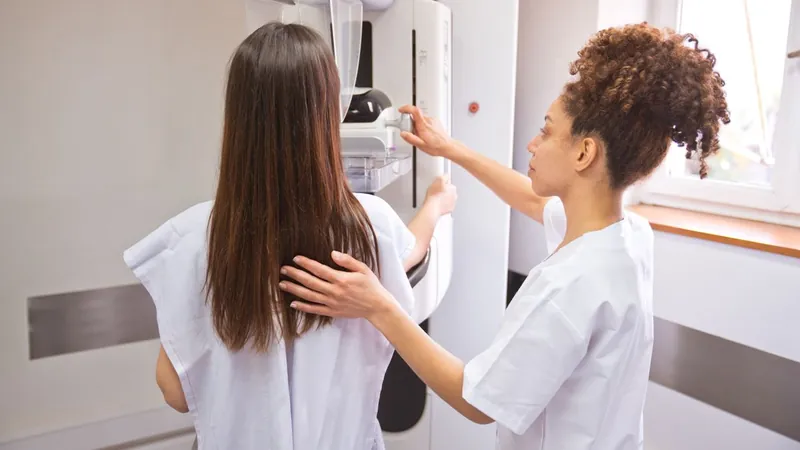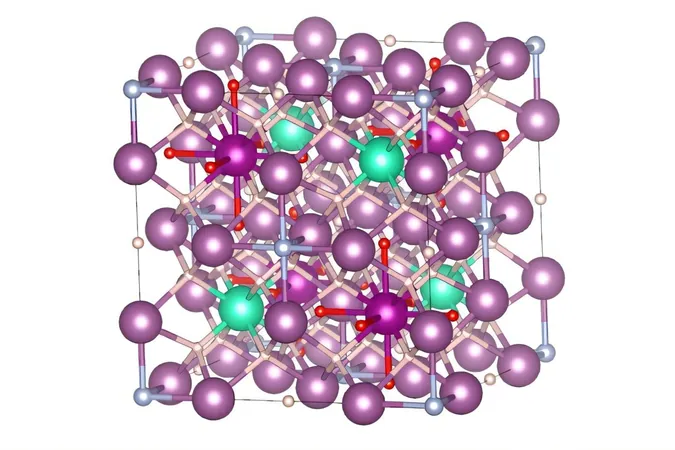
New Study Reveals 80 Unrecognized Genes Tied to Breast Cancer Risk: Are Our Understanding and Treatments Changing?
2024-11-05
Author: Wei
Introduction
A groundbreaking new study has unveiled 80 gene variants potentially linked to breast cancer, a staggering 70 of which were previously unrecognized in the context of the disease. This major revelation suggests that our understanding of genetic risks related to breast cancer may need a significant overhaul.
Research Focus
Researchers conducted a thorough analysis of the genomes from 12 families representing Jewish Middle Eastern, North African, and Ashkenazi ancestries, all of whom exhibited high rates of breast cancer without any known genetic causes. This focused approach is crucial, as previous genetic studies largely centered on women of European descent, leading to a significant oversight of possible risk factors in other ethnic groups. Dr. Gal Passi, the lead author of the study and a doctoral student at the Hebrew University of Jerusalem, stated that expanding genetic research to include diverse ancestry could help uncover these overlooked gene variants.
Methodology
In their study, scientists identified 1,218 mutations shared among 35 individuals diagnosed with breast cancer, juxtaposed against 5 non-cancerous family members. Utilizing advanced machine learning techniques, the researchers predicted which of these genetic variants might encode proteins that increase cancer risk.
Findings
Astonishingly, among the 80 variants identified, eight were found to be linked to fatty acid metabolism, a process critical for cell energy production. This raises an intriguing hypothesis: Could breast cancer cells be exploiting fatty acid breakdown to fuel their aggressive growth?
Clinical Implications
In a related examination involving around 10,000 breast cancer patients from a large genetic database, it was noted that approximately 9% carried the eight gene variants discovered in the earlier family analysis. Alarmingly, three of these variants were associated with lower survival rates compared to other genetic profiles. This suggests that these gene variants could play a significant role not just in the risk of developing breast cancer, but also in determining the outcomes for those affected.
Future Directions
As the researchers move forward, they are eager to validate their findings through laboratory experiments aimed at observing how these gene variants influence tumor development and progression. This step could be critical in validating the biological implications of their predictions.
Potential Impact on Treatment
If confirmed, this research could herald a new era for genetic testing and treatment approaches for breast cancer, paving the way for personalized medicine that targets specific genetic profiles. One of the highlighted gene variants, HSD17B4, has already emerged as a potential drug target in breast cancer treatment, indicating that this research could contribute significantly to the future of cancer therapy.
Conclusion
The implications of this study are vast, providing hope for many who have faced the uncertainty of genetic testing leading to self-doubt or feelings of helplessness. Awareness of these 80 gene variants could not only transform understanding of breast cancer risk factors but also lead to more inclusive and effective genetic screening and targeted treatments. Stay tuned as science advances in this critical area!



 Brasil (PT)
Brasil (PT)
 Canada (EN)
Canada (EN)
 Chile (ES)
Chile (ES)
 España (ES)
España (ES)
 France (FR)
France (FR)
 Hong Kong (EN)
Hong Kong (EN)
 Italia (IT)
Italia (IT)
 日本 (JA)
日本 (JA)
 Magyarország (HU)
Magyarország (HU)
 Norge (NO)
Norge (NO)
 Polska (PL)
Polska (PL)
 Schweiz (DE)
Schweiz (DE)
 Singapore (EN)
Singapore (EN)
 Sverige (SV)
Sverige (SV)
 Suomi (FI)
Suomi (FI)
 Türkiye (TR)
Türkiye (TR)